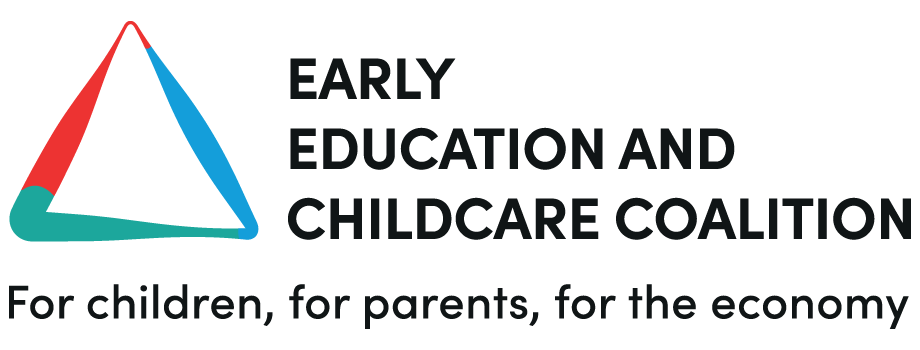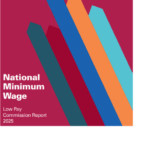
Voters say that early education reform key in General Election
A new report from the Early Education and Childcare Coalition (EECC) – of which NDNA is a member – launched today has revealed that for 42% of British voters, childcare and early education reform will be key in their decision about who to vote for in the general election.
- 44% of people think that childcare and early education professionals are underpaid
- Almost two-thirds (59%) of voters think that good early years education benefits the whole country, not just parents
The new report ‘Pulse Check: Public attitudes towards early education and childcare’ contains new research conducted by Claremont and More in Common for the EECC. The findings are a snapshot of voter attitudes towards the early education and childcare sector.
The report has found that the majority of people in the UK believe that early education and childcare play a pivotal role in children’s development. Most voters think early education and childcare is more than just a safe place for parents to drop off their kids, a majority (51%) think it’s about supporting a child’s development and wellbeing. Almost two-thirds (59%) of voters think that good early years education benefits the whole country, not just parents.
Speaking on behalf of the Coalition, Sarah Ronan, Acting Director for the Early Education and Childcare Coalition, comments, “Right now, we have an opportunity to truly transform the future of early education and childcare through sustainable reform of the sector. Voters understand
that we all benefit from an early education and childcare sector with the right investment. Politicians need to understand that, too and invest accordingly.
It’s clear from our data that childcare reform is not just a priority for parents now but for future parents too, and for grandparents who often find themselves plugging the gap created by the current broken system. British voters have told us here that they think the early education workforce is underpaid and undervalued. Parents don’t want ‘cheap childcare’ at the expense of quality or safety. They care about their children’s experience, and importantly, they care about the people that care for and educate their children.”
Over a third of voters (40%) support investing more taxpayers’ money in early education and childcare even if it means higher taxes for everyone; this figure rises to 59% for people who are hoping to become a parent. However, as things stand, 44% of British people think those working in childcare and early education are underpaid, and 31% believe they are undervalued. Almost half of all voters (49%) said that well-trained staff was an important factor when it came to providing good quality early education and childcare, with over a third (36%) saying the same about decent pay for staff.
Purnima Tanuku OBE, Chief Executive of NDNA said: “We are delighted to be at the heart of today’s launch of the Early Years and Childcare Coalition. It’s an impressive group to be a part of and with so much change on the horizon, together we can be a really strong voice to ensure our youngest children have access to high quality early education and care.
“A child’s first five years count more than any other time in their lives. They create 90% of their neural pathways and develop their foundations for lifelong learning, wellbeing and happiness.
“We can now bring together our collective voice to build public and political support for our children’s early education. New polling data commissioned by the Coalition shows the public support for investment in early years and that for 42% of voters, early education reform will be key in their choice of MP.”
Commenting on behalf of UNISON, the trade union with the largest membership in early years and nurseries, and a member of the EECC, general secretary Christina McAnea said: “All children deserve high-quality care and education delivered by well-paid professionals. But early-years staff have endured more than a decade of wage freezes and below-average pay awards. The cost-of-living crisis has devalued their income even further, causing staff to leave for better-paid work. A proper wage is an investment in the workforce, leading to higher quality early-years care and learning.”
Earlier this year in the Spring Budget, the Chancellor set out plans to invest more in childcare. The report has found that over two-thirds of voters (68%) think that it’s a good idea in principle to expand childcare provision. Voters believe this will give parents the freedom to return to work or increase their hours (54%) and make children more sociable by playing with children their own age, as well as getting them ready for school (45%).
However, support for the Government’s proposals drops to just 32% when the public is presented with criticisms about low funding rates, workforce strategy and lack of floor space – all essential reforms which are needed to make this investment a success.
The new report comes as the Early Education and Childcare Coalition holds its official launch event today in Westminster. The Coalition was formed by more than 30 organisations representing parents, children, providers, those working in early education and businesses.
About the Early Education and Childcare Coalition:
The Early Education and Childcare Coalition is an independent group that unites the voices of parents, children, providers, those working in the sector and the wider business community. Our vision is of an early education and childcare sector that provides high-quality, affordable provision for all families in all communities, and with it, good pay, conditions, and funding for those providing that education and care. We use our collective voice and research to build public and political support for early education and childcare.
The Coalition was developed by the Women’s Budget Group, the UK’s leading feminist economics think tank, and is funded by the Kiawah Trust, a charitable foundation that supports initiatives to tackle educational and gender inequality. It was co-founded by the following organisations:
| 4 in 10 BookTrust Children England Citizens Advice Community Union Coram Family and Childcare Dingley’s Promise Early Education Early Years Alliance Fatherhood Institute Fawcett Society Federation of Small Businesses Gingerbread Joseph Rowntree Foundation KIDS London Early Years Foundation Mumsnet | Nanny Solidarity Network National Children’s Bureua National Day Nurseries Association National Education Union Oxfam PACEY Pregnant Then Screwed Save the Children Sutton Trust TUC Twins Trust UNICEF UK UNISON Women’s Budget Group Working Families Young Women’s Trust |
To learn more about the Coalition, its members and its aims, please visit www.earlyeducationchildcare.org
- England
Similar Articles
Government research shows school-based nurseries are not delivering flexible provision to its communities

One in seven childcare professionals paid around minimum wages


